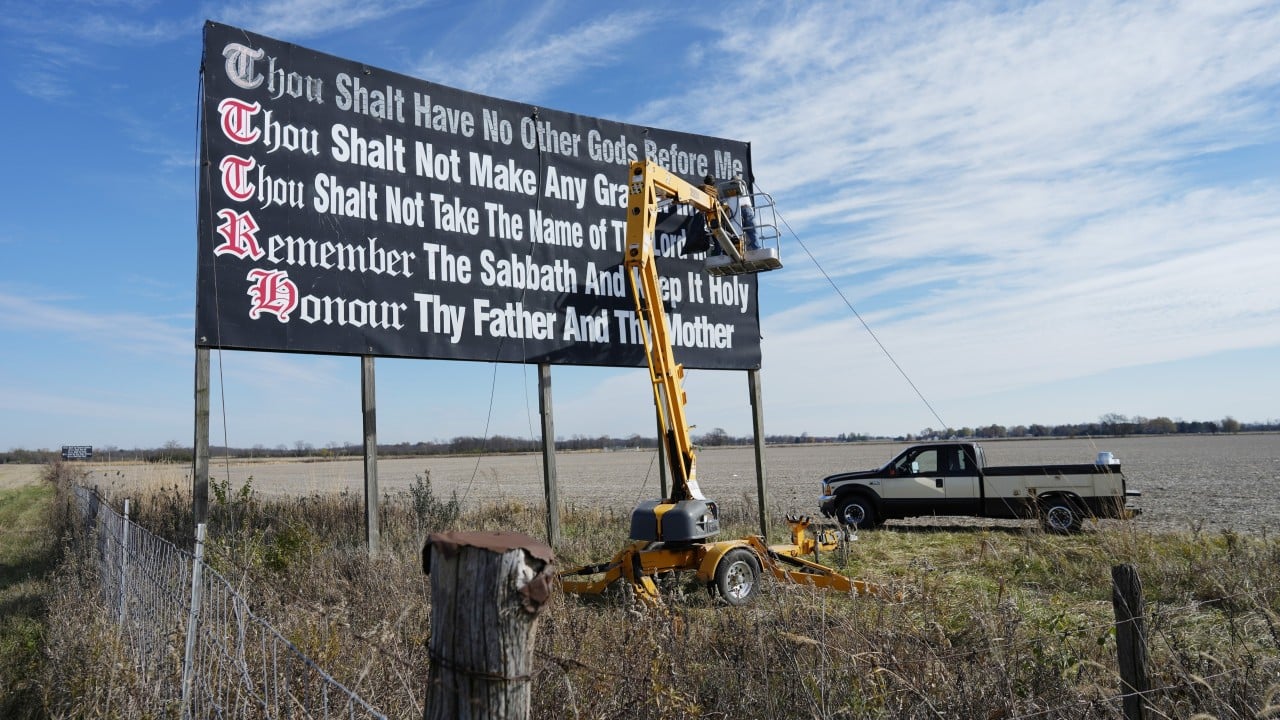The governor of Louisiana signed a bill Wednesday requiring the Ten Commandments be displayed in every public school classroom in the conservative US state, reigniting the debate over separation of church and state.
The legislation, the first of its kind in the nation, mandates that the biblical text be on display starting in 2025 in all public school classrooms from kindergarten through state-funded universities.
“If you want to respect the rule of law, you gotta start from the original law given – which was Moses,” Jeff Landry, Republican governor of the southern state, said at the bill’s signing ceremony.
The law requires the Ten Commandments to be displayed as a poster or framed document “and shall be printed in a large, easily readable font,” the bill’s text reads.

The posters are to be financed by donations and state funds will not to be used.
The American Civil Liberties Union (ACLU) responded to the legislation by indicating it would take the case to court.
“The law violates the separation of church and state and is blatantly unconstitutional,” the organisation said in a statement.
The First Amendment of the US Constitution forbids the establishment of a national religion or the preference of one religion over another.
Similar bills requiring the Ten Commandments be displayed in classrooms have been proposed in other states within the US “Bible Belt”, including Texas, Oklahoma and Utah. However, with threats of legal battles over the constitutionality of such measures, no state besides Louisiana has succeeded in making the bills law.
Legal battles over the display of the Ten Commandments in classrooms are not new.
In 1980, the US Supreme Court ruled that a similar Kentucky law was unconstitutional and violated the establishment clause of the US Constitution, which says Congress can “make no law respecting an establishment of religion”.
The high court found that the law had no secular purpose but rather served a plainly religious purpose.
Agence France-Presse and Associated Press


